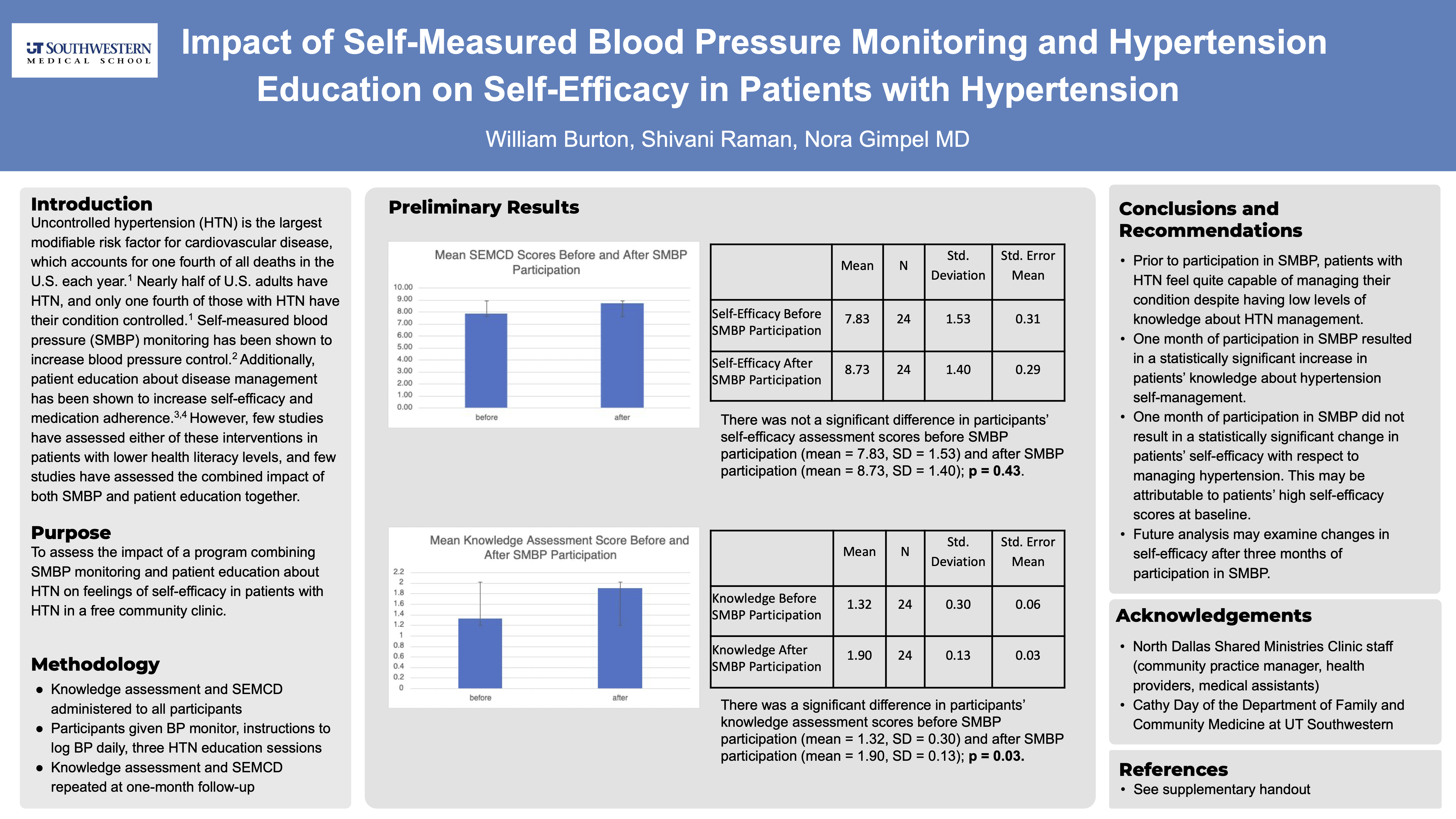SRFP058: Impact of self-measured blood pressure monitoring and hypertension education on self-efficacy in patients with hypertension
William Burton, Medical Student; Shivani Raman, Medical Student; Nora Gimpel, MD
Abstract
Objective: To assess the impact of a program combining SMBP monitoring and patient education about HTN on feelings of self-efficacy in patients with HTN in a free community clinic.
Human Subjects Review: Non-regulated research
Design: Pre-post intervention study using patient survey data
Setting: Free clinic in north Texas that serves medically underserved and uninsured patients
Participants: Adults >18 years of age with elevated BP or diagnosis of HTN
Intervention: Participants were given two surveys, one to assess their knowledge of HTN (score range 1-2; 1 = correct answer, 2 = incorrect answer) and the other to assess their feelings of self-efficacy for managing chronic disease (SEMCD, score range 1- 10). The two surveys were administered before and after providing participants with a BP monitor, instructing them to log their BP daily, and delivering education sessions. Education sessions included information about HTN risk factors and complications, how to measure and interpret BP, diet, physical activity, and medication adherence.
Anticipated Results: Preliminary mean of the SEMCD is 7.98 [SD = 1.52] for all participants (n = 20) prior to enrollment in the blood pressure program. The knowledge assessment has a mean score of 1.62 [SD = 0.28] for all participants prior to enrollment. Data collection is ongoing and will include post-intervention survey data.
Conclusions: Preliminary data suggest that patients with HTN feel capable of managing their condition despite having low levels of knowledge about HTN management. Future analysis will compare the mean score of the pre and post-surveys for each participant to understand the relationship between participation in the program and knowledge and self-efficacy with respect to HTN self-management.

Jack Westfall
jwestfall@aafp.org 11/21/2021This is a great topic and research study. Nice work. Thanks